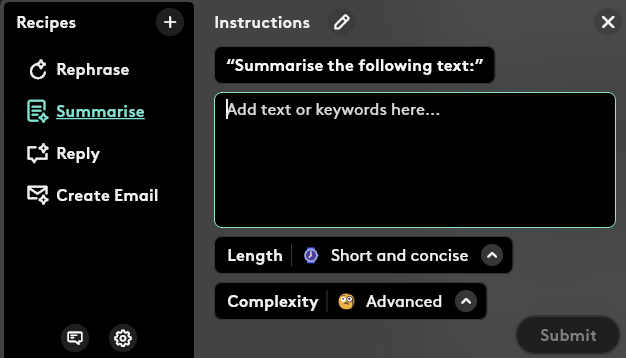

deleted by creator


deleted by creator


They are also not charging for those. As soon as money is involved you get even more into a legal minefield and they will come down hard on you.


Be aware that most of them are too tight and bend the port if you have even the slimmest case on the Steam Deck.


Oh their wish for action might actually be fulfilled. No voice actors needed for this anymore very soon.
Yeah I noticed. Even though I read the whole message, my brain saw lichess.org again and was like: ah yes, chess.
deleted by creator
You might like to think that from your point of view, but the executives and marketing folks get that idea from somewhere. And if it would not make additional money it would have been gone again already.
Its just something to have AI in your product description. Because I guess consumers have decided that you have to have it in there.

You can already use with with any Logitech mouse in the Options+ Software.
It is what it says: it builds a prompt for you (with the text you marked) and can submit it to ChatGPT using a WebView. You have to actually login to ChatGPT, so it is no Logitech thing specifically.



After looking deeper into the docs they do not support and do not plan to support the Relying Party role. So it probably won’t fit for this use case.


Depending on what you are trying to do, Authelia does have OIDC in beta https://www.authelia.com/roadmap/active/openid-connect/
I use Authelia again since in beta it now supports multiple Pass/FIDO keys via the web interface, and it does work reasonably well.


Probably more. Your app can use the local API then as well. And AWS is insanely expensive, especially if you forget to block log ingestion to Cloudwatch (ask me how I know).


Well, how about having a local API and have no calls at all to your cloud infrastructure? Probably too easy and you cannot lock people into your ecosystem.


Does it though? I had a similar setup in the past, but I did not feel good with it. If your first backup corrupts that corruption is then synced to your remote location. Since then I have two separate backup runs for local and remote. But restic as well with resticprofile. Remote is a SFTP server. For restic I am using the rclone backend for SFTP since I had some connection issues with the internal SFTP backend (on connection resets it would just abort and not try to reconnect, but I think it got improved since then)
I recently decided to dive a bit deeper into flows since the plugin stacks were failing on me sometimes. Cobbled together something from the examples provided, seems to work fine for me now. Depending the worker it runs on it tries to transcode with nvenc or qsv, if it fails or is not available the flow falls back to cpu transcode.